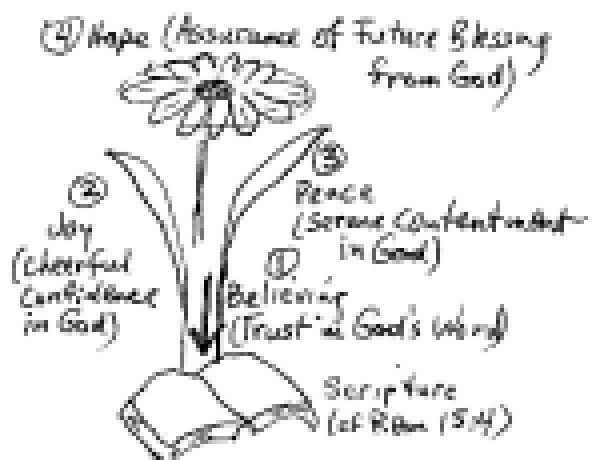Lord’s Day Meditation – Abounding in Hope
Now may the God of hope fill you with all joy and peace in believing, that you may abound in hope by the power of the Holy Spirit.
Rom. 15:13
This is one of the loveliest prayers in the Word of God. Short, and simple, yet simply profound. It may be thought of as a capstone and conclusion to all that has come before in the book of Romans. What we are to “believe” includes the apostle’s comprehensive teaching on God’s great work of salvation in the chapters before. Or the verse may be seen as an introduction to what comes after, the personal news from Paul, and the greetings to his friends that follow. But as he prays for his friends, so we may pray for one another.

The desire and goal of the prayer is that we “abound in hope.” Hope may be defined as: the joyful certainty of future blessing. Surely Christians ought to be just bubbling over and overflowing with it. And the verse gives us a kind of anatomy of hope, or, if you will, a prescription for hope. As we trust in the promises of God’s Word, the Spirit of God awakens joy and peace in our souls. The full flower of the process is hope. Perhaps we might say: faith + joy + peace = hope.
It is when we are depending on God, and filled with joy and peace–when our thinking and planning, and all our relationships are flooded with it–that hope overflows and blesses those around us. In contrast, when we fail to trust in God, our lives are more likely to be filled with crankiness and criticism, and with frustration and stress. Then we will surely abound and overflow with dis-couragement–which will easily spread to others.
How can people survive without hope. In fact, they probably can’t. Sometimes it seems as though suicide is epidemic in our day. And what would bring a person to a point where he would take his own life? At the bottom of it there is a loss of hope, and the conviction that things can only get worse. The individual feels surrounded on all sides by a blank wall of despair. No way out. No hope.
But we have a message for the hopeless, a message of the imperishable spring: That through a personal relationship with the Lord the picture will begin to change dramatically. To be without God, is to be without hope (Eph. 2:12), since He is “the God of hope.” It is only the Christian who is able to abound in eternal hope. And central to the Christian’s hope is Christ. He is “the Lord Jesus Christ, our hope” (I Tim. 1:1). That is where Norman Clayton’s hymn takes us.
My hope is in the Lord
Who gave Himself for me,
And paid the price of all my sin
At Calvary.
For me He died, for me He lives
And everlasting life and light
He freely gives.
